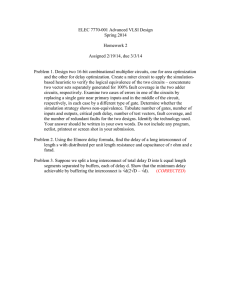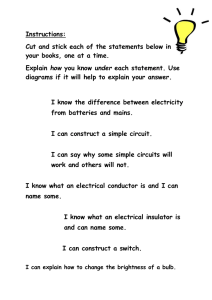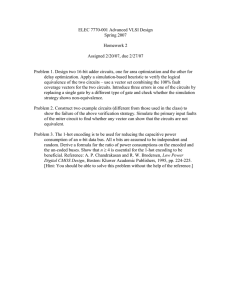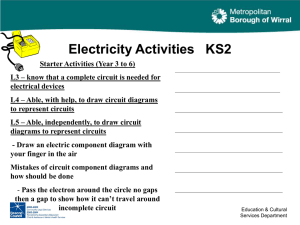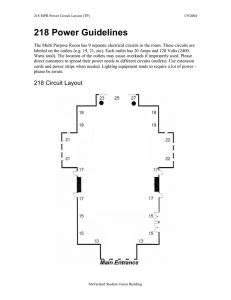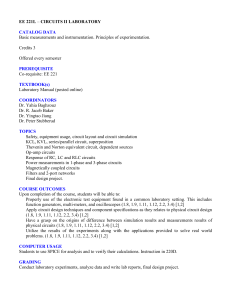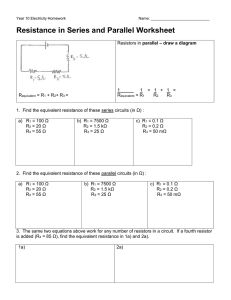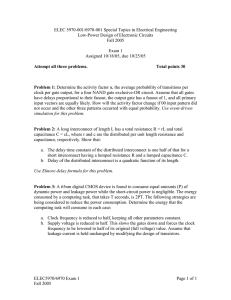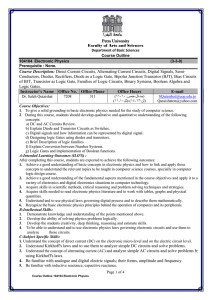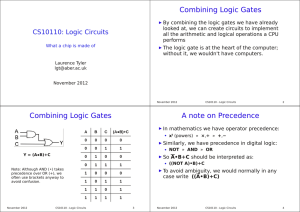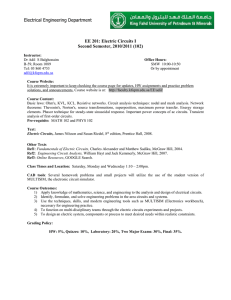ELEC 7770-001 Advanced VLSI Design Spring 2012 Homework 2
advertisement
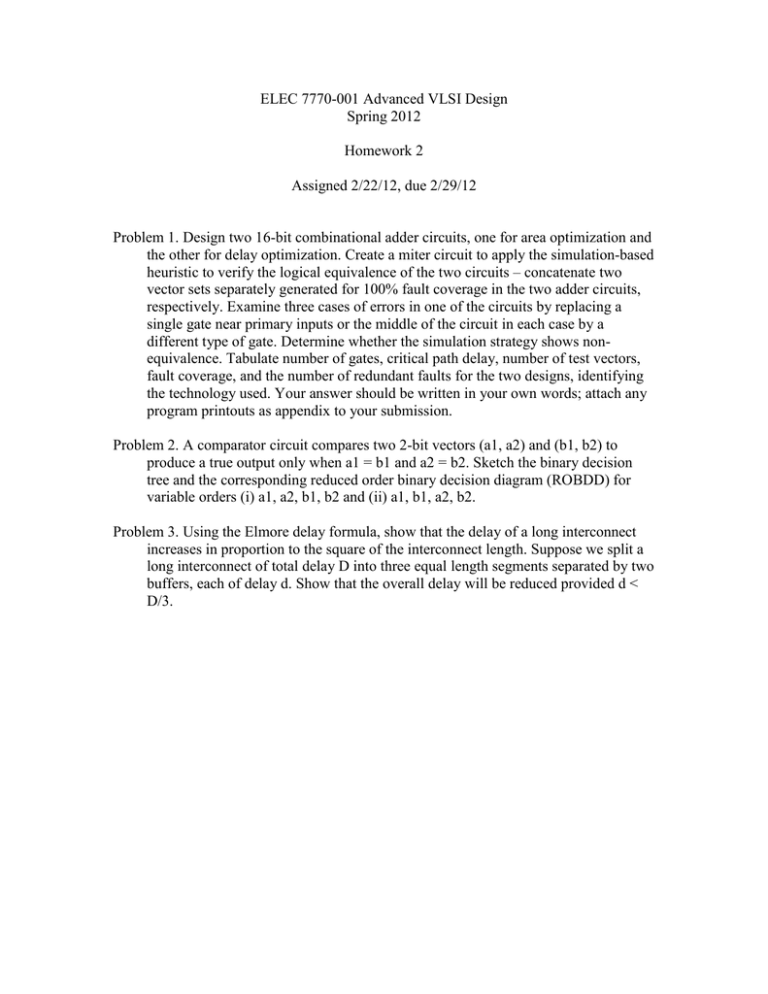
ELEC 7770-001 Advanced VLSI Design Spring 2012 Homework 2 Assigned 2/22/12, due 2/29/12 Problem 1. Design two 16-bit combinational adder circuits, one for area optimization and the other for delay optimization. Create a miter circuit to apply the simulation-based heuristic to verify the logical equivalence of the two circuits – concatenate two vector sets separately generated for 100% fault coverage in the two adder circuits, respectively. Examine three cases of errors in one of the circuits by replacing a single gate near primary inputs or the middle of the circuit in each case by a different type of gate. Determine whether the simulation strategy shows nonequivalence. Tabulate number of gates, critical path delay, number of test vectors, fault coverage, and the number of redundant faults for the two designs, identifying the technology used. Your answer should be written in your own words; attach any program printouts as appendix to your submission. Problem 2. A comparator circuit compares two 2-bit vectors (a1, a2) and (b1, b2) to produce a true output only when a1 = b1 and a2 = b2. Sketch the binary decision tree and the corresponding reduced order binary decision diagram (ROBDD) for variable orders (i) a1, a2, b1, b2 and (ii) a1, b1, a2, b2. Problem 3. Using the Elmore delay formula, show that the delay of a long interconnect increases in proportion to the square of the interconnect length. Suppose we split a long interconnect of total delay D into three equal length segments separated by two buffers, each of delay d. Show that the overall delay will be reduced provided d < D/3.
